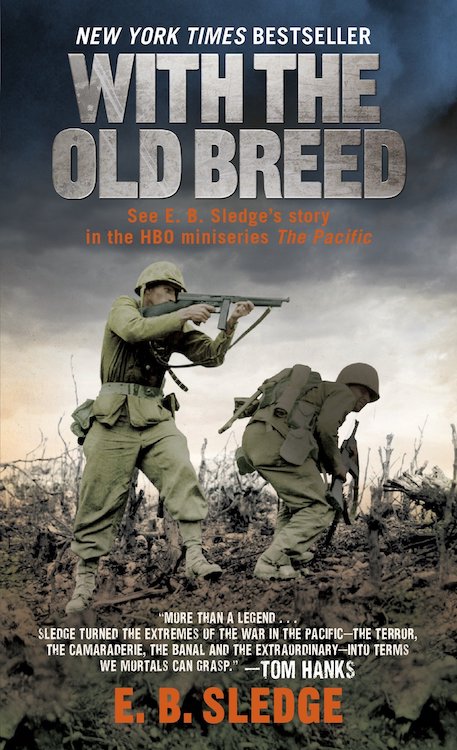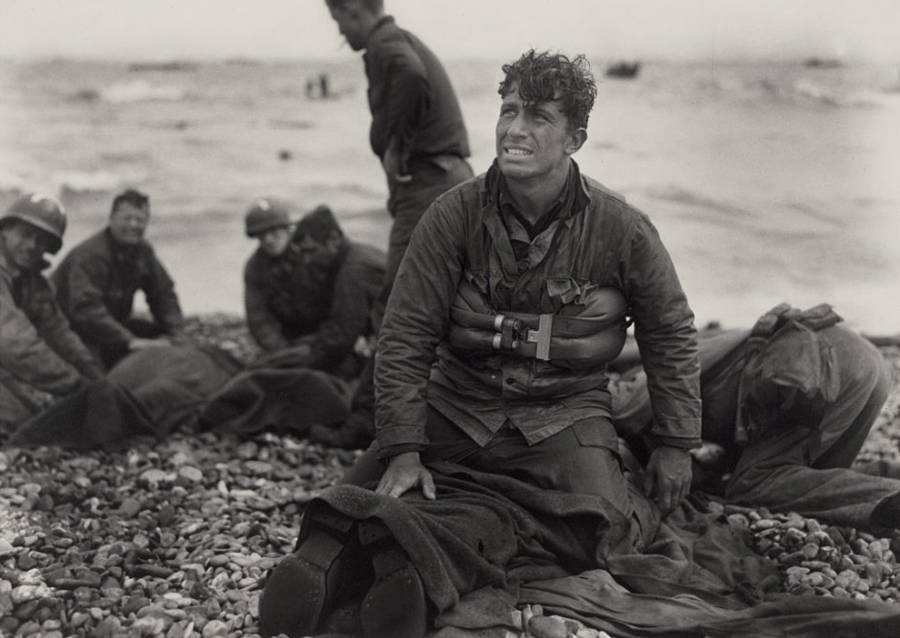Working under the Air Force, I get to read a lot of the guidance and encouragement given by its leaders. Recent events in Afghanistan led many DoD leaders to write about the challenges of our withdrawal. As I read the Secretary of the Air Force’s words on it, I was confronted with a mixed-bag of thoughts. He talked about sharing experiences, telling Airmen that “We are all experiencing a lot of emotions right now.”
Now, emotions are not a bad thing. We’ve learned a lot about facing them from Vietnam on. This is something we’ve known from all of humanity’s history of war – it takes an emotional toll. So it really is important to address this, and I hope it works. But is there a tradeoff somewhere? I honestly don’t know. I just remember some lines from E.B. Sledge’s With the Old Breed when he spoke about his training for close-combat fighting with the Japanese. In war, there are really no rules in the trenches – the Marines were taught to fight dirty. Why? Because “if you didn’t kick the Jap in the balls, he’d sure as hell kick you in yours.”
I’ve tried to get to this point before in my writing. It’s not about hand-to-hand (or foot to groin) combat in a foxhole anymore, but the concept still holds. The hacker of a foreign power will not hesitate to shut down the power on the west coast if he’s called upon to do it during a war. He’ll have no problem draining the money from your accounts, or, if he’s lucky enough for the big score, crashing the stock market and crippling the economy.
And he doesn’t care about you in the slightest. In war, it’s about winning. As General Patton famously said, “No dumb bastard ever won a war by going out and dying for his country. He won it by making some other dumb bastard die for his country.” We’ve got our basic guidance of humanity and ethics, but when it’s either him or you, you’ve got no choice but to be ruthless.
Sledge’s first-hand account of Marine action on Peleliu and Okinawa during World War II is incredible. It’s absolutely brutal, and it’s absolutely honest in its description and assessment of combat. It’s like the opening moments of Saving Private Ryan, but worse. Not as clean. The censors of the time never let audiences see the newsreels of American dead on the battlefield, and if the trauma was too great for those watching in the comfort of theaters, what must it have done to those who were there?

We’re nowhere near that scale now. Where before there were thousands, nowadays there are very few Americans who can tell you they saw their buddies cut to pieces by artillery, mortars, machine-gun fire. That they had to step over the bodies of their fellow Marines and friends blown open with entrails spilled, limbs scattered, heads a bloody pulp, as they pressed forward to take an objective. My uncle, who served in Korea during the war, talked to me once about it. But never again.
People who have experienced this need as much help and support as possible, and I applaud leaders’ concerns. But I don’t want anyone to confuse this with having to work 12-hour shifts for a few weeks in an air-conditioned bunker either. There are a whole new set of challenges for today’s “warrior,” but we must be careful not to soften our understanding of the “enemy,” whomever that is. Their methods have changed, the results often less bloody; but they still don’t play by the rules, and we have to be mentally and emotionally prepared to face that.
So I have a tinge of wonder and concern when I see the direction we take at times. I’m consistently confronted with the attitude that “we don’t have to do it like in the good old days,” and to some extent, that’s true. But there are some things to be said for tradition and discipline. You can’t always have it your way, and sometimes not having it your way in small matters that seem insignificant and meaningless to you right now might prepare you for not having it your way when you have no other choice. When it really matters.
The US military at the beginning of the Korean War was thoroughly unprepared. They’d had their fill of death and destruction from a war that had only concluded a few years before. But the North Koreans didn’t care. They didn’t sit and wait for us to get ourselves together emotionally to fight another war. And as I write this, news is coming out of Afghanistan that 13 U.S. troops were killed in suicide bombings at Kabul Airport with headlines telling us that “Biden vows retaliation.”
But wait. Aren’t we done with Afghanistan?
My apologies to those of the Star Trek generation who believe we’ll all be flying around the galaxy in a happy spaceship just a century or two down the road, but this isn’t the end of it. You may desire getting comfortable and thinking that the world will accommodate your way of doing things, but it just isn’t so. While it may be in human nature to desire a life of peace, it is more so in human nature to claim that peace for oneself at a cost to others, even if only slightly. And that’s the gentle approach. Put bluntly, there will always be plenty of actors out there who will settle for nothing less than their own way at all costs.
And so again, I go to my beginning thoughts. We must care for those who truly suffer, but there has to be a point where we need to face reality and steel ourselves against the brutality of the world and our fellow man. This is especially important for those in a profession that may one day have to confront the serious reality that their actions mean death to others…or even themselves.


This post is especially thoughtful